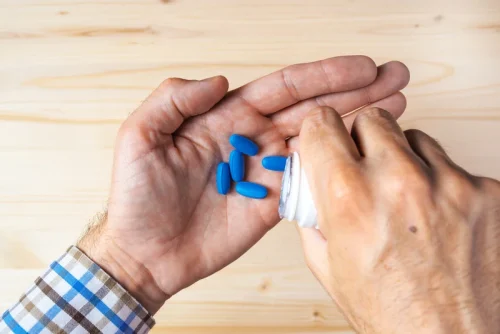
Unfortunately, there’s little to no evidence that tapering off reduces the effects of alcohol withdrawal, some of which can be severe or even life-threatening. Quitting with proper medical supervision may be more important than whether you stop gradually or all at once. When they suddenly quit drinking, the brain continues its hyperactivity, but alcohol no longer suppresses the effects.
Tips for Tapering Yourself off Alcohol
You may experience alcohol withdrawal symptoms when you quit drinking alcohol. This can happen whether you’re quitting alcohol cold turkey or tapering. If you suddenly quit drinking, your body can struggle to catch up. Because alcohol is a central nervous system depressant, quitting drinking can cause your body to have too much of an excitatory substance called glutamate as it tries to rebalance.
Make a plan.

Soon, they will become second nature and your triggers will not have as much of an effect on you. All your goals should follow SMART rules; they should be specific, measurable, achievable, realistic, and time bound. You might reach for alcohol when you’re really just thirsty, says Crews. Drink a cup of soothing tea or a tall glass of water before you imbibe—once your thirst is quenched, you may not feel the need for as much—or any—alcohol. If you turn to alcohol to ease anxiety, try exercise as a healthy alternative. Instead of aiming for complete abstinence, for instance, aim to drink fewer than seven days a week.
Decreased Risk of AUD
Although it is possible to taper at home, having medical supervision and assistance can ensure a successful taper. If you struggle to stop drinking, avoid places and situations that tempt you to drink alcohol. You may even ask your friends and family not to drink while around you. Another clue that can be an indication of an unhealthy relationship with alcohol is if you make “rules” around drinking. A sober life doesn’t have to mean more time at home as you try to block out triggers. It can mean more time for your other interests, and even new interests.

Examine alcohol health effects
- While receiving treatment, healthcare providers will want to monitor you continuously to make sure you don’t develop life-threatening complications.
- It may be easier on your rehabilitation to skip visits with “drinking buddies” or avoid gatherings with a focus on drinking.
- Because of this, it’s important to plan around the alcohol detoxification process carefully.
- It’s best to reduce your drinking by a small amount each day to avoid the shock to your system.
- Finally, just because you’ve gotten past the withdrawal phase doesn’t mean you won’t continue to face psychological aspects of addiction—including alcohol cravings and drinking triggers.
Alcohol causes serious changes in the brain, and prolonged symptoms such as sleep problems, mood changes and fatigue may take months to overcome, according to the U.S. These can indicate a life threatening condition called delirium tremens. It’s important to seek urgent medical care if you experience any of these symptoms. For mild alcohol withdrawal that’s not at risk of worsening, your provider may prescribe carbamazepine or gabapentin to help with symptoms.

Eat before and in between drinks.
One 12-ounce can of beer contains about 5% alcohol, and a standard glass of sherry is 3 to 4 ounces and contains about 17% alcohol, according to the NIAAA. You may also consider joining an online support group to help you feel less alone. Letting others know about your choice to stop drinking may help motivate you to stick with how to taper off alcohol at home your decision. Emotionally, you may feel some anxiety or sadness about ending a chapter of your life and nervousness about the future. We all become conditioned to have certain responses to triggers throughout our lives. It’s normal for certain stimuli to cause a reaction in your mind and body without even being aware of it.
Effects of Tapering Off Alcohol
Alcohol impacts our sleep, relationships, weight, risk for serious chronic conditions and more. Medical supervision ensures that care is immediately available if serious symptoms arise. Detoxing from alcohol at home is not universally recommended due to varying levels of safety for different people. https://ecosoberhouse.com/ The withdrawal process can be dangerous, and its symptoms vary depending on the severity of alcohol use. Daily drinking can have serious consequences for a person’s health, both in the short- and long-term. Many of the effects of drinking every day can be reversed through early intervention.
That is why alcohol detox and alcohol withdrawal treatment is administered by medical professionals. Choosing to taper off alcohol is an admirable decision and a step in the right direction. As with many self-detox methods, the risks and rewards go hand in hand when attempting to overcome an alcohol substance use disorder. But, with a little prior knowledge on how to taper off alcohol, adequate planning and professional consultation from a healthcare provider, it can certainly be done. This is why it is important to stop regular, heavy drinking only under the supervision of medical staff.
- However, here is a sample timeline of what the average person can expect.
- Surrounding yourself with other people who are sober will dramatically improve your chances of staying away from alcohol.
- Someone will slowly diminish the amount they drink with the intention of avoiding the symptoms of alcohol withdrawal completely and will hopefully be able to avoid a relapse as well.
- However, your body is adaptable, and after a period of regular, heavy drinking, your nervous system will adapt to the presence of alcohol.

Expect to feel some discomfort, including anxiety, sweating or irritability. If you feel more severe symptoms, such as paranoia, increased pulse, or tremors sometimes called alcohol shakes, you should taper more slowly and consider seeking professional help. If you feel severe symptoms, such as hallucinations, rapid heartbeat or disorientation, call 911 immediately. Before beginning a tapering schedule, speak with your doctor about the risks of detoxing at home. Tapering off alcohol may complicate other medical conditions or co-occurring mental health disorders.
Gradually decreasing alcohol intake through supervised tapering can make quitting safer and ease withdrawal severity. If you are struggling with severe alcohol use or addiction, tapering off alcohol at home may not be a safe option. The most effective option for alcoholics to stop drinking is to find a treatment program that offers medical detox services. If you are interested in medical detox, contact one of our Vertava Health treatment specialists to find alcohol detox programs near you.


